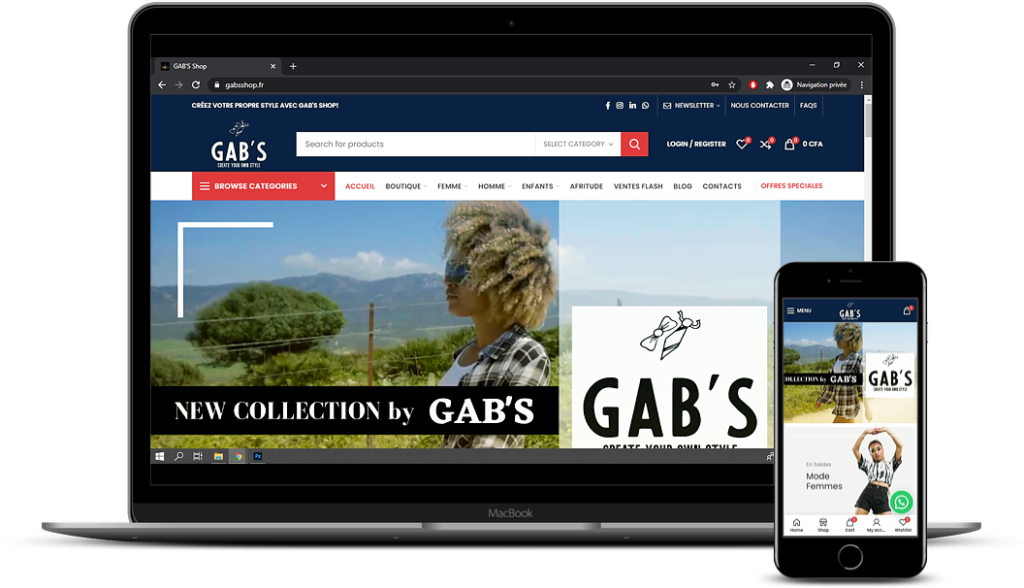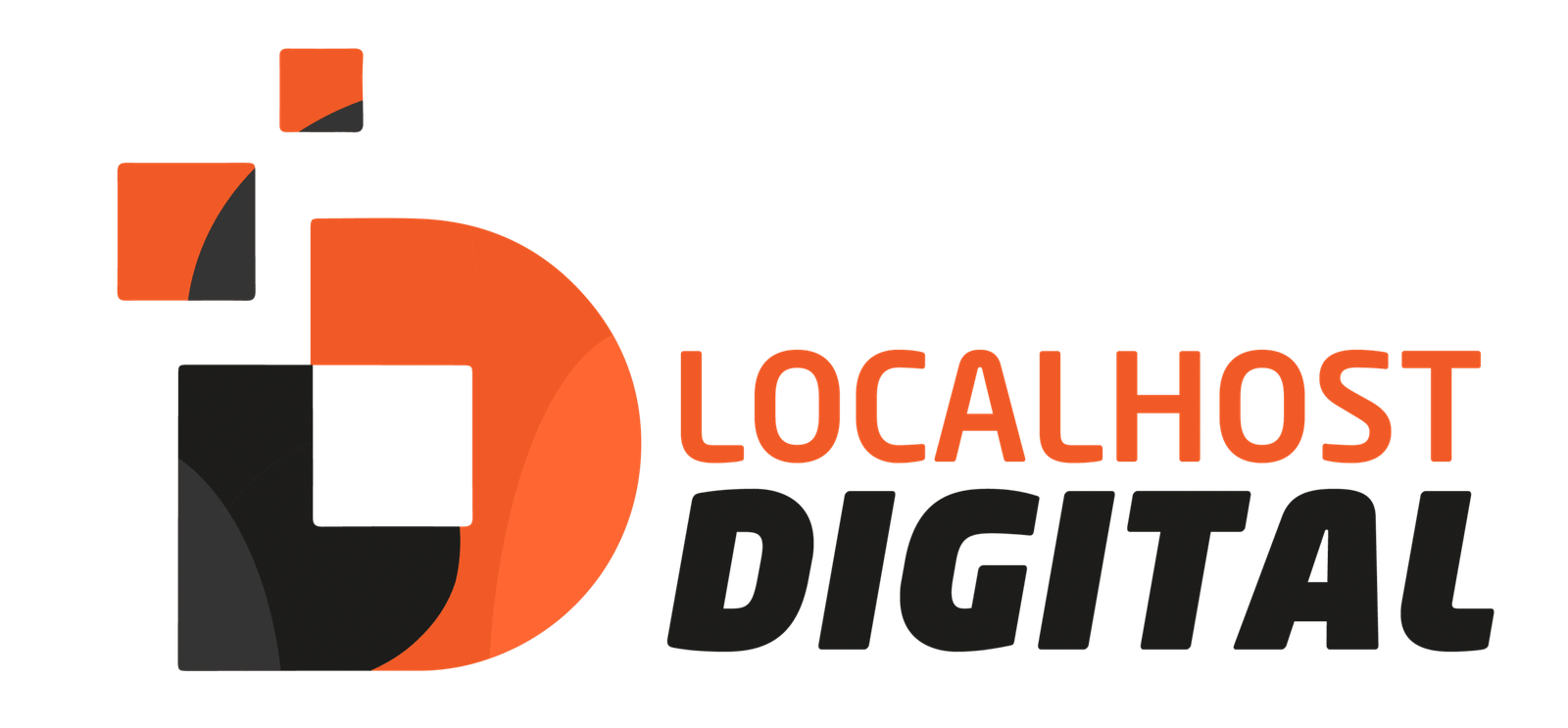
Introduction
Canada’s digital economy is thriving, creating fertile ground for tech-based entrepreneurship. In fact, 39,828 new businesses opened in Canada in January 2025, a 74.6% jump from the previous month and a remarkable 185.7% increase over January 2024 (10 Most Profitable Business Ideas In Canada In 2025). Many of these are scalable, digital-first ventures that can be launched with minimal capital. The following report highlights the most promising tech-based online business opportunities in Canada – each requiring low upfront investment but offering high growth potential. We focus on 2025 trends and beyond, emphasizing opportunities that individuals or small teams can start easily. For each opportunity, you’ll find a brief description, estimated startup costs, key skills, market outlook in Canada, relevant support programs, and useful platforms or tools to help you get started.
1. Niche E-Commerce (Dropshipping & Print-on-Demand)
Digital commerce continues to boom in Canada. Running a niche online store through models like dropshipping or print-on-demand lets you sell products without holding inventory, keeping costs low. By focusing on a specific niche or trending category (for example, eco-friendly products or unique pet accessories), small entrepreneurs can stand out in the market.
- Startup Costs: Very low – often under $1,000. You’ll need to budget for a website (as low as ~$29/month for a Shopify plan) and perhaps a small marketing budget. Inventory costs are minimal since suppliers ship products directly to customers when orders are placed.
- Required Skills: Basic web literacy, online marketing (social media and possibly search ads), and product research. An eye for trends or niches is crucial. No coding required if using e-commerce platforms.
- Growth Potential (Canada): High. Canada’s e-commerce market is projected to exceed $74 billion CAD in 2025 (up from $65.5 billion in 2024) (Making Your Online Store A Top Valentine’s Day Shopping Spot – Priority Payments), reflecting consumers’ growing trust in online shopping. Canada also has a strong global supplier network and robust shopper base (The Top 5 Best Canadian Business Ideas For 2025 – Bizfund), making it easier to profit with the right strategy.
- Government Support: The Canada Digital Adoption Program (CDAP) offers micro-grants up to $2,400 to help small businesses build e-commerce websites and improve their online presence (Top 11 Small Business Grants for Canadians in 2025 – Canada Small Business Startups and Funding). This can offset the cost of setting up your online store or marketing. Additionally, provincial small business centers often provide free training or mentorship for new online entrepreneurs.
- Platforms & Tools: User-friendly platforms like Shopify (a Canadian company) or WooCommerce make it easy to launch a store. Leverage print-on-demand services (e.g. Printful) or dropshipping apps (e.g. DSers) to source products without inventory. Market your store via social media (Instagram, Facebook) and consider marketplaces like Etsy (for handmade or custom items) or Amazon’s Canadian marketplace to reach existing customer bases.

2. Affiliate Marketing
Affiliate marketing is a performance-based online business where you earn commissions by promoting other companies’ products or services. It’s an attractive low-cost model – essentially, you act as a digital sales partner for brands. For example, you might run a niche review blog or a comparison website that links to e-commerce products, earning a percentage of each sale made through your referral.
- Startup Costs: Minimal – often just the cost of a domain and hosting (well under $100/year). Many affiliate marketers start with free social media accounts or a basic blog. You might invest modestly in content creation (e.g. a good website theme or email marketing tool), but upfront expenses are very low.
- Required Skills: Content creation (writing blog posts, making videos, or social media content), SEO (to drive search traffic to your site), and digital marketing skills. You should be able to identify trending products or services and create engaging content recommending them. Analytical skills help to track which promotions convert best.
- Growth Potential (Canada): Strong and growing. Affiliate marketing is part of the broader creator economy which is on the rise. Brands are expected to spend over $650 million on influencer and affiliate marketing in Canada by 2025 (Influencer Advertising – Canada | Statista Market Forecast), indicating plenty of opportunity for those who can attract an online audience. Canadian consumers increasingly research purchases online, making affiliate product review sites or recommendation blogs quite effective.
- Government Support: There are no specific grants for affiliate marketers (since you’re essentially a self-employed marketer), but you benefit from the generally low business startup costs in Canada. You can write off reasonable business expenses (internet, software, etc.) on taxes. If you expand into creating a larger digital media business, you might explore programs like Creative Export Canada (which supports digital media content creators) or small business grants for marketing, but typically affiliate marketing is self-driven.
- Platforms & Tools: To get started, build a content platform: for instance, launch a WordPress website or YouTube channel around your niche. Sign up for affiliate networks like Amazon Associates (Amazon.ca), ShareASale, or CJ Affiliate, which aggregate many affiliate programs. Use SEO tools (Google Keyword Planner, SEMrush) to find high-demand keywords, and analytics tools (Google Analytics) to monitor traffic and conversions. Social media platforms (Instagram, TikTok) can also be used to share affiliate product links with an audience – just ensure you follow disclosure guidelines.
3. Content Creation & Influencer Marketing
The creator/influencer economy offers another scalable online business avenue. This involves building a following on social media or content platforms (Instagram, TikTok, YouTube, blogs, podcasts) and monetizing that audience. Revenue streams include advertising, brand sponsorships, fan donations or subscriptions, and merchandise sales. Canadian content creators have a global reach and can turn personal passion into profit.
- Startup Costs: Very low. Typically just a smartphone or camera, internet connection, and possibly some basic equipment (microphone, lighting) if doing video or podcasting – you can start with a few hundred dollars or less. Most platforms (YouTube, TikTok, Instagram) are free to use.
- Required Skills: Creativity and consistency are key. You should excel at content production (whether it’s videography, writing, photography, or audio). Skills in storytelling and on-camera (or on-mic) presentation help build an engaged audience. Social media marketing know-how is important to grow followers. Over time, business skills like negotiating sponsorships and personal branding will be useful.
- Growth Potential (Canada): Excellent. Social media usage is high in Canada, and brands are eager to collaborate with influencers who reach niche communities. Influencer advertising spending in Canada is forecast to reach ~$656 million in 2025 (Influencer Advertising – Canada | Statista Market Forecast), indicating robust demand for sponsored content and partnerships. Moreover, thousands of Canadians now work as full-time digital content creators, a number that keeps climbing each year as more people turn their online presence into a business.
- Government Support: While there aren’t direct grants for “being an influencer,” Canada does have some programs for the creative sector. For example, the Canada Media Fund and Telefilm offer funding for digital media projects (like web series or interactive digital content) – if your content creation expands into those areas, you could explore those. Otherwise, your best support will be online creator communities and perhaps business training from local entrepreneur programs. (It’s also worth noting that as a Canadian creator, you benefit from strong intellectual property laws and platforms that often have Canadian ad markets, which can translate into decent ad revenue share for you.)
- Platforms & Tools: Major platforms to build an audience include YouTube (for video content), TikTok and Instagram (short videos, photos, stories), and Twitch (for live streams). To monetize, creators use tools like Patreon or Ko-fi for fan subscriptions and donations, and Shopify or Printful for selling merchandise. Content creation tools such as Canva (for graphics), Adobe Creative Suite or CapCut (for video editing), and analytics tools built into platforms (YouTube Studio, Instagram Insights) will help improve content quality and reach. Leverage these to produce professional content and track your growth.
4. Freelance Digital Services (Web, Design, Marketing, etc.)

Offering your professional skills as a freelancer is one of the fastest ways to start an online business with virtually no capital. In this model, your expertise (e.g. web development, graphic design, writing, digital marketing, SEO, bookkeeping, etc.) is the product. You can operate as an independent contractor or eventually grow into a small agency. Canada’s remote work trend and talent demand make this especially viable – many companies are looking to outsource specialized tasks to independent professionals.
- Startup Costs: Almost zero. If you already own a computer and have an internet connection, you’re nearly set. You might spend a small amount on creating a basic website or online portfolio for yourself (could be done for under $100, even free using LinkedIn or freelance platforms). No office needed – you can work from home or anywhere.
- Required Skills: Your core hard skills in whatever service you’re providing (coding, design, writing, etc.) and the ability to market yourself. Soft skills like communication, time management, and self-discipline are crucial for success as a freelancer. You’ll also need to handle basic business admin (invoicing, client agreements) – though many platforms help with this.
- Growth Potential (Canada): Very high. The gig economy is rapidly expanding in Canada, with nearly 700,000 Canadians earning income through digital platforms in 2024 (up 44% from the previous year) (Number of digital gig workers in Canada surged by 44% in 2024 – The Logic). This growth reflects both individuals turning to freelance work and businesses increasingly embracing remote contractors. Canada’s pool of small and mid-sized businesses often prefer to hire freelancers for flexible expertise rather than full-time staff. With remote work now mainstream, a Canadian freelancer can just as easily service clients in Vancouver or Toronto as in New York or London.
- Government Support: There isn’t a specific grant for “freelancing,” but general small-business support applies. For example, if you decide to formally register a business (sole proprietorship or corporation), you can access free resources from the Business Development Bank of Canada (BDC) and local Small Business Enterprise Centres for training or mentorship. If your freelance work ventures into innovative territory (say you develop a new software tool as part of a contract), programs like NRC IRAP (Industrial Research Assistance Program) might provide R&D funding (Top 11 Small Business Grants for Canadians in 2025 – Canada Small Business Startups and Funding) (Top 11 Small Business Grants for Canadians in 2025 – Canada Small Business Startups and Funding). Also, new freelancers coming off employment might check if they qualify for the Canada Self-Employment Assistance Program (offered in some provinces), which provides support while starting a business.
- Platforms & Tools: To find clients and showcase your services, use freelance marketplaces like Upwork, Freelancer, or Fiverr – these platforms connect you with a global client base and handle payments (useful when starting out) (The Top 5 Best Canadian Business Ideas For 2025 – Bizfund) (10 Most Profitable Business Ideas In Canada In 2025). A professional LinkedIn profile can attract Canadian clients looking for experts. It’s wise to set up a simple portfolio website (using tools like Wix or WordPress) to demonstrate your work. For day-to-day work and collaboration, familiarize yourself with tools like Slack or Zoom (for client communication), Trello or Asana (project management), and whatever industry-specific software your field uses (for example, Adobe Illustrator for design, Visual Studio Code for programming, etc.). These tools ensure you can deliver quality work efficiently in a remote setting.
5. Virtual Assistant (VA) Services
Virtual assistants are freelancers who provide administrative and operational support services to businesses or busy professionals entirely online. Tasks can range from managing emails and calendars to social media posting, data entry, customer service, and bookkeeping. As more Canadian businesses (and global companies) operate remotely or streamline their operations, the demand for VAs is rising. You can start solo and even grow into a virtual assistant agency by hiring others, all with very low upfront cost.
- Startup Costs: Negligible. You likely just need your computer and internet. Perhaps budget for software subscriptions that improve productivity (many have free tiers). If you decide to formalize an agency, costs might include a simple website or extra communication tools, but initially this can be well under $500.
- Required Skills: Organization, reliability, and strong communication are key. You should be comfortable with common office software (email clients, spreadsheets, word processors). Depending on client needs, you might use tools like scheduling apps, social media dashboards, or basic accounting software. Being a quick learner helps, as each client might use different systems. Professionalism and discretion are also important, since you may handle sensitive information.
- Growth Potential (Canada): Growing steadily. Many Canadian entrepreneurs and small businesses prefer to outsource admin tasks so they can focus on core operations. Virtual assistance allows them to pay for just the help they need without hiring an employee. This model also lets you tap into an international client pool – for instance, a VA based in Canada can serve clients in the US or Europe. Given Canada’s time zones and English/French language skills, Canadian VAs can be very competitive. As of 2025, the trend of businesses hiring remote assistants and consultants is firmly established, and it’s common to see even solo entrepreneurs in Canada using part-time VAs for support.
- Government Support: There’s no direct funding for virtual assistants, but if you grow into a multi-VA agency, you can access general small business programs. For example, Futurpreneur Canada offers loans and mentorship to young entrepreneurs (18–39) looking to start service-based businesses, which could help launch a VA agency. Additionally, if you eventually hire staff, you could look at the Canada Job Grant (which helps fund training for employees). Initially, though, the support you’ll likely use is networking – consider joining freelance associations or local Boards of Trade to meet potential clients.
- Platforms & Tools: Start by listing your services on freelance job platforms (Upwork, Fiverr, Freelancer) or dedicated VA networks. These can help you land your first clients quickly (10 Most Profitable Business Ideas In Canada In 2025). Use communication and scheduling tools like Zoom or Google Meet for client calls and Google Workspace or Microsoft 365 for managing documents, emails, and calendars on behalf of clients. Tools like Hootsuite or Buffer are useful if you offer social media management. For task and time management (to juggle multiple clients), consider Toggl (time tracking) and Asana/Trello (task tracking). These tools help you stay efficient and deliver professional service as a remote assistant.
6. Online Courses and Coaching
If you have expertise in a subject area or a valuable skill to teach, creating an online course or offering coaching/consulting sessions can be a lucrative digital business. E-learning was booming even before 2020, and it continues to grow as people and businesses invest in continuous learning. Whether it’s teaching languages, programming, personal finance, marketing, or even niche hobbies, Canadians (and global customers) are eager to learn online. This is a high-margin, scalable opportunity – create a course once and sell it repeatedly.
- Startup Costs: Low. It can range from almost nothing (using just a webcam and free course platforms) to perhaps a few hundred dollars if you invest in a good microphone, camera, or course software. You might also spend on marketing your course (optional). Overall, many creators launch a quality course with well under $1,000 invested.
- Required Skills: Deep knowledge in your topic and the ability to teach or communicate clearly. You’ll need to structure lessons and possibly be comfortable speaking on video or writing instructional content. Presentation and curriculum design skills are a plus (e.g. making slides or worksheets). Marketing skills help too – you’ll have to reach your target students via social media, email newsletters, or partnerships.
- Market Demand (Canada): Very strong and still rising. The online education market in Canada is projected to reach about US$6.87 billion in 2025, with an annual growth rate of ~8.4% in the following years (Online Education – Canada | Statista Market Forecast). Canadians are actively engaging in upskilling and personal development online. Furthermore, by creating courses in English (or French), Canadian course creators can sell to a global market. Platforms report booming enrollment in courses related to tech, business, wellness, and creative skills. In short, if you can solve a problem or fulfill a learning desire with your course, there’s likely a willing audience.
- Government Support: Direct grants for creating online courses are rare, but there are programs to support training businesses. For instance, if your online training ties into improving digital skills, you could look at Innovation, Science and Economic Development (ISED) programs or provincial innovation grants. If you plan to target Canadian SMEs with your training, the government’s focus on digital skills development could open some partnership opportunities. Additionally, if you qualify, the Canada Job Grant might help any employees/contractors you work with to develop training content (as it subsidizes training costs). However, for most individual course creators, the support will be indirect – e.g., using publicly funded research or data in your field, or taking advantage of free business mentorship programs to help you market your course.
- Platforms & Tools: Popular e-learning platforms like Udemy, Skillshare, and Teachable allow you to host and sell courses easily (they handle payment, video hosting, etc.). For live coaching or webinars, tools like Zoom (with paid plans for group sessions) are essential. You can also create your own course site using Learning Management System (LMS) plugins for WordPress (such as LearnDash). To create course content, use slide presentation tools (PowerPoint/Keynote or Google Slides), screen recording software like OBS Studio or Camtasia (if doing software demos), and design tools like Canva (for visuals and course marketing materials). Don’t forget to leverage social media (LinkedIn, YouTube, Facebook groups) to build an audience and email marketing services (MailChimp, ConvertKit) to stay in touch with prospective students.
7. Self-Published Author (E-books and Print-on-Demand Books)
The rise of digital publishing has opened doors for writers and content creators to become their own publishers. Whether you aspire to write novels, practical guides, children’s books, or even graphic novels, you can self-publish your work in e-book format and in print without a traditional publishing deal. Print-on-demand (POD) services mean physical books are only printed (and paid for) when someone orders a copy, eliminating the need for costly inventory. This is an ideal online business for creatives and experts who want to package their knowledge or stories into a product.
- Startup Costs: Very low. Writing itself costs nothing but your time. For publishing, you might spend a small amount on editing or cover design (freelance editors/designers can be hired for a few hundred dollars or less, or you can swap services in writing communities). E-book publishing on platforms like Amazon Kindle is free; POD services often have no upfront fee (they take a cut per sale). Overall, many authors launch a book for under $500 out-of-pocket, and some do it nearly for free using free tools and self-editing.
- Required Skills: Writing and storytelling ability are paramount. Beyond that, an understanding of your genre/reader expectations will help in crafting a marketable book. You should learn basic formatting or use provided templates for e-books and print layouts. Some design sense helps for cover art (though you can outsource that). Marketing skills will come into play when promoting your book – successful indie authors often build an email list or social media following, or at least have a plan for getting reviews and running ads on Amazon or Facebook.
- Market Potential (Canada): Niche but promising. Canadians are avid readers, and the e-book market is well-established. Many Canadian authors have found success internationally via Amazon Kindle and Kobo (which is a Toronto-based e-book platform popular in Canada). The beauty of this business is that your market is global – a self-published e-book in English can reach readers in the US, UK, and beyond. Print-on-demand allows you to sell paperback or hardcover copies worldwide without upfront printing costs (10 Most Profitable Business Ideas In Canada In 2025). While not every book will be a bestseller, a well-targeted book (e.g. a cookbook for a specific diet, or a mystery novel series in a popular subgenre) can generate steady income. You can also create multiple books over time to build your catalog. Keep in mind that success often requires consistent marketing and possibly writing series or multiple books to grow your readership.
- Government Support: There are arts and culture grants in Canada that writers can tap into. For example, the Canada Council for the Arts offers grants to authors and publishers, and many provinces have arts councils that support literary projects. These grants can sometimes fund the creation of a book (usually more applicable if your work has cultural or artistic significance). Additionally, published Canadian authors benefit from the Public Lending Right program, which isn’t a startup grant but annually compensates authors when their books are available in libraries. While you likely won’t rely on government funding to launch, being aware of these programs can help supplement your income or fund a more ambitious book project down the line.
- Platforms & Tools: The go-to platform for self-publishing e-books and paperbacks is Amazon Kindle Direct Publishing (KDP), which lets you reach Kindle e-reader users and Amazon shoppers worldwide. Kobo Writing Life is another important platform, especially for Canadian and international distribution (Kobo’s e-readers are common through Indigo/Chapters). For print-on-demand physical books, services like IngramSpark or Amazon KDP’s print service will print and ship books per order. Use Lulu or Blurb for more specialized photo books or color print projects (10 Most Profitable Business Ideas In Canada In 2025). For preparing your manuscript, tools like Scrivener (for writing and organizing book chapters) or even just Microsoft Word/Google Docs work fine – and Canva can be useful for creating cover designs if you do it yourself. Marketing tools specific to authors include Goodreads (to connect with reader communities) and book promotion sites/newsletters. Don’t forget social media – Twitter (X) and Instagram have vibrant communities of readers (BookTok on TikTok is huge for book promotion as well). Engaging with these communities can boost your book’s visibility.
8. Software or App Development (Micro-SaaS Startup)
If you have programming skills or can partner with someone who does, developing a Software-as-a-Service (SaaS) product or a mobile app targeting a specific niche can be a highly scalable online business. Unlike freelancing, here you’re building your own product (a web application, mobile app, or software tool) that users can subscribe to or purchase. The goal is to solve a specific problem for a defined audience – for example, a simple project management tool for freelancers, a scheduling app for fitness coaches, or a niche productivity plugin. This “micro-SaaS” approach means focusing on a narrow market need but doing it well. Given cloud infrastructure and distribution platforms available today, a small Canadian team (even a solo developer) can launch a global software business from their home.
- Startup Costs: Low for a tech business. You won’t have significant capital expenses beyond your development time. Essential costs might include registering a domain, maybe incorporating ($200–$300 in many provinces, optional at first), and cloud server fees which are often minimal at the start (many services like AWS, Google Cloud, or Azure have free tiers or credits for new startups). You might spend a bit on software tools or UI templates. Realistically, if you’re doing the coding yourself, you could get a basic product to market on a few hundred dollars or less. If you lack coding skills and choose a no-code platform to build your app, you might pay a subscription (say $30–$50/month). The biggest “cost” is likely your time.
- Required Skills: Software development (web or mobile) or proficiency with no-code/low-code development tools. You’ll also need product development skills: understanding user needs, designing a user-friendly interface, and iterating based on feedback. If you’re solo, you’ll wear many hats – developer, product manager, and customer support. If you’re not technical, you can learn no-code tools like Bubble or Glide to create web apps, but some understanding of logic and design is needed. Basic business skills (marketing your app, handling payments/subscriptions, customer service) will come into play once you launch.
- Growth Potential (Canada): Very high, with the right idea. Tech startups are a fast-growing segment of Canadian entrepreneurship. Canada is known for a supportive tech ecosystem – it continues to establish itself as a global leader in innovation, with thriving sectors in software, AI, and digital services (Entrepreneurship 2025: Emerging Opportunities in Canada). A micro-SaaS can start as a side project and potentially scale to thousands of users worldwide if it addresses a real pain point. Notably, over half of Canadian businesses plan to increase AI and tech investments by 2025 (Canadian firms to boost AI investments significantly by 2025), which means there’s a growing market for software solutions that improve productivity, data analysis, and other business functions. Canadian success stories like Shopify, Hootsuite, and others also inspire confidence in the tech startup path. Even on a small scale, a useful app can generate recurring revenue and, if it gains traction, could attract investors or buyers.
- Government Support: Ample support for tech startups. The federal government’s NRC IRAP program provides funding and advisory services to innovative small businesses developing new technologies (Top 11 Small Business Grants for Canadians in 2025 – Canada Small Business Startups and Funding) (Top 11 Small Business Grants for Canadians in 2025 – Canada Small Business Startups and Funding). If your software involves R&D or novel technology (like an AI component), IRAP can co-fund development costs. There are also regional development agencies and startup incubators across Canada (e.g., Communitech in Ontario, CDPQ in Quebec, TEC Edmonton, etc.) that offer grants, loans, or equity investment for promising tech ideas. Innovative Solutions Canada is another program that issues challenges and grants for tech innovation. Additionally, if you’re a young company with high growth potential, you might qualify for the Startup Visa Program (if seeking international co-founders/investors) or various tax credits (e.g., SR&ED tax credit returns a portion of R&D expenses). In short, Canada’s ecosystem is rich with accelerators, government grants, and venture capital interested in tech-based solutions.
- Platforms & Tools: For web apps, look into Heroku or Vercel for easy deployments, or use cloud platforms (AWS, Azure, Google Cloud) which often have startup credits. Version control and collaboration via GitHub or GitLab will help manage your code. If going the no-code route, Bubble, Webflow, or Adalo can let you build apps with little coding. To publish mobile apps, you’ll use Apple’s App Store and Google Play Console (note: those have a small annual or one-time developer fee, e.g. $25 for Google Play). Integrate analytics with tools like Google Analytics or Mixpanel to see how users interact with your app. For collecting payments, services like Stripe or PayPal can be set up quickly. Finally, project management tools (Jira, Notion, or even a simple Trello board) will help keep your development on track. Leverage online communities (Reddit, Dev.to, Hacker News) to get feedback on your idea and early adopters for your product.
9. AI Consulting and Services

Artificial Intelligence (AI) is a transformative trend in the 2020s, and many businesses are eager to leverage AI but lack in-house expertise. This creates an opening for small consultancies or freelancers specialized in AI solutions. An AI-focused online business could take various forms: offering consulting to companies on how to implement AI tools, building custom AI or machine-learning models for clients (if you have that technical skill), or providing AI-driven services like chatbot development, AI content generation, or data analytics as a service. With new accessible AI APIs (like OpenAI’s GPT-4) and frameworks, even a single knowledgeable individual can deliver sophisticated solutions. Canada in particular has a strong AI research reputation (Toronto, Montreal, etc. are AI hubs), and businesses nationwide are starting to adopt these technologies.
- Startup Costs: Low, primarily your expertise and computing resources. If you’re consulting on AI implementation, costs are just your basic business setup (website, marketing, etc.). If you’re developing AI models or applications, you might need cloud computing power – many AI services offer free tiers or pay-as-you-go pricing. For example, you can use free credits on Google Cloud or Colab for smaller projects. You might invest in specific software or online courses to stay on top of AI developments, but an initial budget in the low thousands (or less) is usually sufficient to get started.
- Required Skills: A strong understanding of AI and machine learning concepts. This could range from knowing how to use pre-built AI services (like training chatbots, using computer vision APIs, etc.) to advanced skills in data science and programming (Python, TensorFlow/PyTorch for custom model building). Communication and business consulting skills are also important – you need to translate business needs into tech solutions and explain AI in simple terms. If focusing on AI content generation or chatbots, creative skills and prompt engineering (crafting effective inputs for AI) become valuable. Essentially, you should be both technically adept and able to identify practical use cases for AI in various industries.
- Market Demand (Canada): Rapidly increasing. While only a minority of Canadian companies have fully deployed AI so far, over 56% of organizations plan to boost AI investments in 2025 (Canadian firms to boost AI investments significantly by 2025). Many small and medium businesses are exploring AI for the first time (e.g., using AI for customer service, marketing analytics, or process automation) and they often need guidance. Canada’s federal and provincial governments are also investing in AI initiatives, which means more businesses and public sector organizations will be looking for AI expertise. For example, the government earmarked $2 billion in Budget 2024 for Canada’s AI strategy (Government of Canada finalizes investment to support Canadian …), aiming to accelerate AI adoption. This overall environment suggests that consultants who can deliver AI solutions or training will find a growing client base. From local startups to traditional industries like finance, healthcare, or travel looking to incorporate AI, the opportunities are widespread.
- Government Support: Significant for tech and AI. Aside from the general tech startup supports mentioned above (IRAP, grants for innovation), there are AI-specific programs. Scale AI, based in Montreal, is Canada’s AI-focused innovation supercluster that co-funds AI projects in supply chains – if your AI service aligns with such projects, there could be funding opportunities. Innovative Solutions Canada often has challenge calls that involve AI solutions for government needs. Additionally, research grants (through NSERC or Mitacs) could be leveraged if you partner with academia on an AI innovation. As a consultant, you might not directly get a grant just to offer services, but you might partner on funded projects. Keep an eye on the Canada Digital Adoption Program as well – while it’s aimed at general digital tech, businesses adopting AI could qualify under its umbrella for funding or loans to pay for those services (Top 11 Small Business Grants for Canadians in 2025 – Canada Small Business Startups and Funding). The bottom line: there is a policy push to increase AI adoption, which indirectly means more business for AI service providers, sometimes facilitated by government incentives.
- Platforms & Tools: Familiarize yourself with major AI and cloud platforms. OpenAI’s API (for GPT-4, DALL-E, etc.) allows you to build conversational agents or content tools easily. Google Cloud AI and Azure AI offer ready-to-use models for translation, vision, etc., as well as infrastructure to train custom models. If doing data-heavy work, you might use Jupyter Notebooks and libraries like Pandas, TensorFlow, or PyTorch for custom ML. For chatbot development specifically, frameworks like Rasa or IBM Watson Assistant can be useful. Managing projects can involve tools like GitHub (for version control of code/models) and collaboration platforms such as Slack or Microsoft Teams if working with client teams. To showcase your capabilities or prototypes, you can create simple demos using Streamlit (a Python framework for data app demos) or even set up a basic website with examples of AI tools (maybe via WordPress or a static site). Also consider joining communities like Element AI’s community (AI Hub) or forums like Kaggle and Reddit’s /r/MachineLearning – they can help you stay ahead of trends and possibly source clients or collaborators.
Conclusion
Starting a tech-based online business in Canada has never been more accessible. With a strong digital infrastructure, a population quick to adopt online services, and numerous support programs, even solo entrepreneurs can make a big impact. The opportunities above – from e-commerce and content creation to freelance services and software startups – all share common advantages: low capital requirements, scalability, and flexibility to work from anywhere. Canada’s government and financial institutions also offer support ranging from small business grants to startup loans and mentorship (for example, programs like Futurpreneur Canada provide financing and mentoring to young entrepreneurs).
When choosing an opportunity, consider your own skills, passions, and the market need you can fulfill. Research your target niche thoroughly and take advantage of free or low-cost resources (many online tools and communities can guide you through the early stages). The Canadian market in 2025 is hungry for innovation and digital solutions, but success still requires commitment – treat your online venture professionally, focus on delivering real value to customers, and be prepared to adapt as you learn. With dedication and smart use of available platforms and supports, a small online business can grow into a thriving enterprise. The barrier to entry is low, and the potential rewards are high (10 Most Profitable Business Ideas In Canada In 2025) (10 Most Profitable Business Ideas In Canada In 2025) – it’s an exciting time to turn your tech-driven idea into reality in the Canadian marketplace.
LocalHost Digital: La Meilleure Entreprise Web & Digitale au Canada et en Afrique

L’Agence de Transformation Digitale N°1 LocalHost Digital est à votre disposition pour tous vos projets. Notre Agence Digitale se spécialise dans le Développement et l’intégration de Solutions Digitales pour Entreprises (ERP, CRM, Gestion Commerciale, Solutions Dédiées…), la Création de Sites Web professionnels, le Développement d’Applications Web et Mobiles, le Développement d’applications Métier, le Marketing Digital, ainsi que dans la Création Graphique et la Formation Pratique dans les différents métiers du Numérique. Nous sommes une Entreprise de Transformation Digitale qui se distingue par sa large gamme de services et stratégies créatives, mais surtout par la qualité de nos réalisations. Nous accompagnons et éduquons nos clients pour qu’ils tirent le meilleur profit des solutions que nous bâtissons avec eux.
Nous éditons et intégrons des solutions logicielles conçues pour simplifier et optimiser la gestion de métiers et d’activités spécifiques :
- Logiciels de Gestion Commerciale
- Logiciel de Gestion de Stock / Entrepôts
- Logiciel de Gestion d’établissements scolaires
- Logiciel de Gestion d’Hôpitaux
- Logiciel de Gestion d’Hôtels et Auberges

Durrell DONGMO NGOUANET | Directeur de LocalHost Digital
Durrell DONGMO NGOUANET est un jeune Ingénieur diplômé de l’École Nationale Supérieure Polytechnique de Yaoundé au Cameroun. Passionné par la Transformation Digitale et Spécialiste des Solutions Numériques, Il est attiré par le challenge et la résolution des problèmes des entreprises | Entrepreneur porté sur le futur, il est Fondateur de l’entreprise LocalHost Group SARL et du Centre de Formation aux Métiers du Numérique LocalHost Academy | Il est également Fondateur du Réseau Social Professionnel TheStarterbook, de la Plateforme d’e-commerce Durrell Market, du Réseaux Social Mobile SnapChoice, la Plateforme d’annonces AnnonceFlash et de bien d’autres initiatives dans le Digital.
Profitez de la promotion pour lancer votre site web professionnel
Nous sommes des spécialistes de la Création de Sites Web Professionnels avec plusieurs années d’expérience au services d’entreprises et de particuliers de par le monde. Consultez nos réalisations en CLIQUANT ICI
Quelques Réalisations Recentes de LocalHost Digital: Meilleure Agence Web et Digitale au Cameroun









Algérie Angola Bénin Botswana Burkina Faso Burundi Cabo Verde Cameroun République centrafricaine Tchad Comores Congo, République démocratique du Congo, République de Côte d’Ivoire Djibouti Égypte Guinée équatoriale Érythrée Eswatini Éthiopie Gabon Gambie Ghana Guinée Guinée Bissau Kenya Lesotho Libéria Libye Madagascar Malawi Mali Mauritanie Maurice Maroc Mozambique Namibie Namibie Niger Nigeria Rwanda Sao Tomé et Principe Sénégal Seychelles Sierra Leone Somalie Afrique du Sud Soudan du Sud Soudan Tanzanie Togo Tunisie Ouganda Zambie Zimbabwe. Alger Luanda Porto-Norvo Gaborone Ouagadougou Gitega Praia Yaoundé Bangui N’Djamena Moroni Brazzaville Kinshasa Yamoussoukro Djibouti Le Caire Malabo Asmara Mbabane Addis-Abeba Libreville Banjul Accra Bissau Nairobi Maseru Monrovia Tripoli Antananarivo Lilongwe Bamako Nouakchott Port Louis Rabat Maputo Windhoek Niamey Abuja Kigali Sao Tomé-et-Principe Dakar Victoria Freetown Mogadiscio Pretoria Djouba Khartoum Dodoma Lomé Tunis Kampala Lusaka Harare
0



